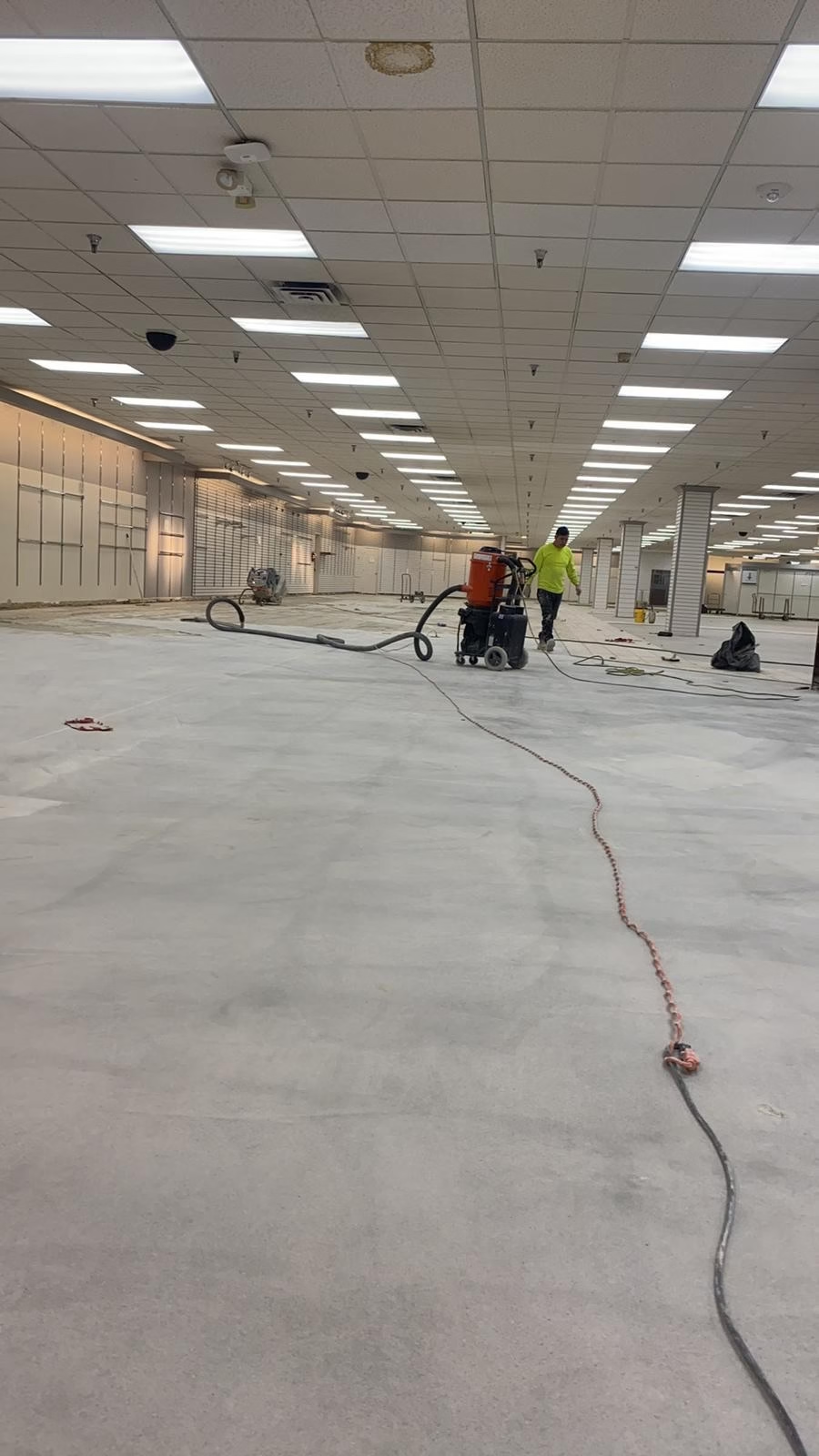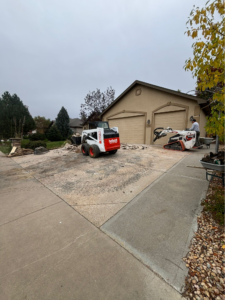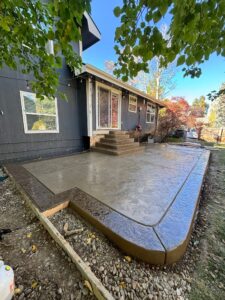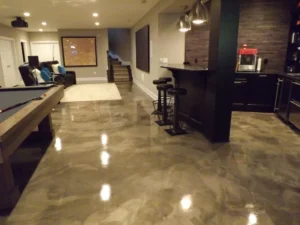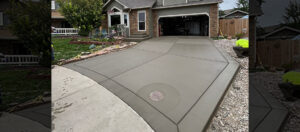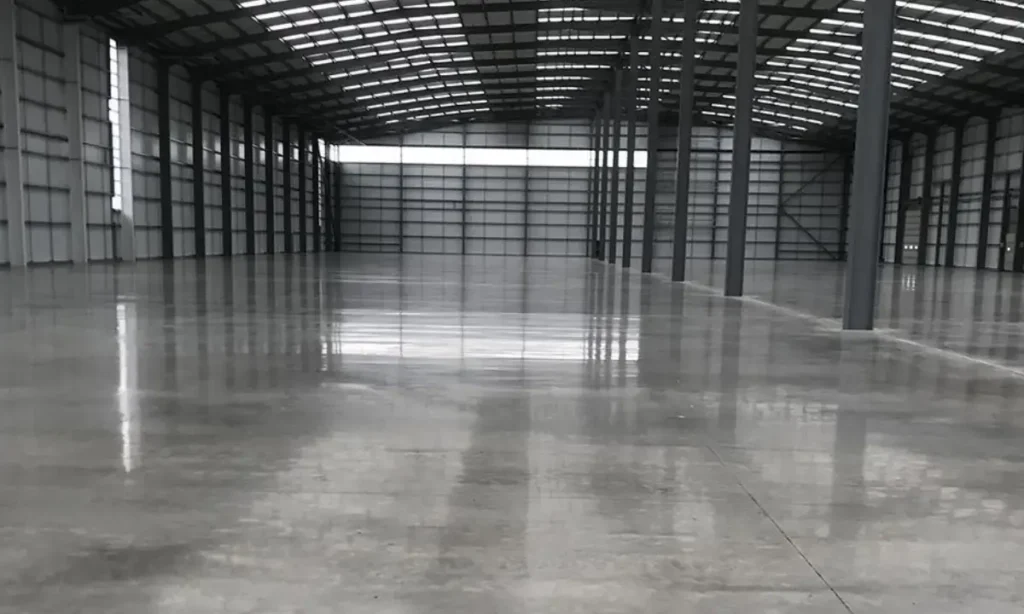When selecting flooring options for commercial spaces, understanding the differences between concrete polishing and epoxy coating is essential. Both have unique advantages, and this article will help you determine which is best suited for your business.
Concrete Polishing: A Durable and Low-Maintenance Solution
Process and Appearance:
Concrete polishing involves grinding and polishing the concrete surface with progressively finer abrasives, resulting in a smooth, glossy finish. This process can produce varying levels of sheen, from a subtle matte to a high-gloss finish, showcasing the concrete’s natural beauty.
Durability and Maintenance:
Polished concrete is exceptionally durable, making it ideal for high-traffic areas such as retail stores and office buildings. The polishing process hardens the surface, reducing wear and tear. Maintenance is minimal, requiring only regular sweeping and occasional damp mopping to maintain its appearance.
Eco-Friendliness:
Polished concrete is an environmentally friendly option as it uses the existing concrete slab, reducing the need for additional materials. The process also enhances the thermal mass of the concrete, contributing to energy efficiency by helping to regulate indoor temperatures.
Applications:
Polished concrete is versatile and suitable for various commercial applications, including showrooms, warehouses, and restaurants. Its sleek, professional appearance enhances the aesthetic appeal of any commercial space while providing a long-lasting flooring solution.
Epoxy Coating: Versatile and Protective
Process and Appearance:
Epoxy coating involves applying a layer of epoxy resin over the concrete surface. This coating can be customized with different colors, patterns, and textures, offering a high degree of design flexibility. The finished surface can be smooth, glossy, or textured for added slip resistance.
Durability and Maintenance:
Epoxy coatings create a protective layer over the concrete, offering excellent resistance to chemicals, stains, and abrasions. This makes them ideal for environments where spills and chemical exposure are common, such as commercial kitchens, laboratories, and industrial spaces. However, epoxy floors require periodic reapplication to maintain their protective qualities.
Application and Safety Considerations:
Applying epoxy coatings involves mixing resin and hardener, which then chemically react to form a hard, plastic-like surface. It is crucial to ensure proper ventilation during installation due to the emission of volatile organic compounds (VOCs).
Applications:
Epoxy coatings are suitable for a wide range of commercial environments, from garages and basements to hospitals and retail stores. Their customizable appearance and protective properties make them a versatile flooring solution that can meet specific aesthetic and functional requirements.
Comparing Concrete Polishing and Epoxy Coating for Commercial Spaces
Aesthetic Flexibility:
Epoxy coatings offer greater design flexibility with a wide variety of colors, patterns, and finishes available. This allows businesses to tailor their flooring to match their branding and decor. Polished concrete, while less customizable in color, provides a sleek, modern look with various levels of sheen to suit different design preferences.
Longevity and Maintenance:
Both polished concrete and epoxy coatings are durable, but their maintenance needs differ. Polished concrete requires minimal maintenance, making it ideal for busy commercial spaces. Epoxy floors, while durable, may need periodic reapplication to maintain their appearance and protective properties.
Cost Considerations:
The cost of polished concrete and epoxy flooring varies based on factors such as the size of the area, the condition of the existing concrete, and the desired finish. Polished concrete may have a higher upfront cost due to the labor-intensive process, but it offers long-term savings due to its low maintenance requirements. Epoxy coatings may have a lower initial cost but can incur additional costs for reapplication and maintenance over time.
Environmental Impact:
Polished concrete is a more eco-friendly option as it uses the existing concrete slab and does not require additional materials. This method also enhances the thermal properties of the building, contributing to energy efficiency. Epoxy coatings involve chemical applications that can emit VOCs, necessitating proper safety measures and ventilation during installation.
Choosing the Right Option for Your Commercial Space
For commercial businesses, the choice between concrete polishing and epoxy coating should consider the specific needs of the space. Polished concrete is ideal for high-traffic areas such as retail stores, showrooms, and office buildings due to its durability and low maintenance. Its sleek and professional appearance adds a modern touch to commercial interiors. Additionally, polished concrete’s resistance to heavy foot traffic and wear makes it a long-lasting solution for large spaces.
Epoxy coatings, on the other hand, are better suited for environments where chemical resistance, hygiene, and customizability are priorities. This makes them a preferred choice for commercial kitchens, laboratories, warehouses, and garages. Epoxy floors can be designed to meet specific aesthetic requirements, including brand colors and logos, which can enhance the branding and identity of a business.
Conclusion
When deciding between concrete polishing and epoxy coating for commercial flooring, it’s crucial to assess the specific needs of the business environment. Polished concrete offers a durable, low-maintenance, and eco-friendly solution that enhances the aesthetic appeal of commercial spaces.
Epoxy coatings provide versatile, protective, and customizable flooring options that can withstand the unique challenges of certain commercial settings.
Ultimately, both options offer distinct advantages, and the best choice will depend on factors such as the type of business, the desired aesthetic, and the functional requirements of the space. By understanding the differences and benefits of each, commercial businesses can make an informed decision that meets their flooring needs and enhances their overall environment.

